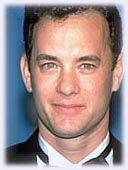
Cal Thomas
http://www.jewishworldreview.com --
"REMEMBER THE ALAMO,'' "Remember the Maine'' and "Remember Pearl Harbor'' were
battle cries to remind us that people gave their liberty and lives in service of their nation. No
one says "Remember Vietnam,'' because we'd just as soon forget that nasty war, except
when it can be used as a weapon against politicians who sought to avoid it.
So what am I doing in a movie theater watching "Return With Honor,'' a powerful
documentary about 20 fighter pilots who volunteered to fly dangerous missions over North
Vietnam and who gave up years of their lives in torturous conditions when they were shot
down and captured by the North Vietnamese? Some friends had invited my wife and me to a
showing of a film "presented'' by Tom Hanks. Co-producer Terry Sanders tells me Hanks
had never attached his name to a film in which he did not play a part, but he was so
impressed by this one that he wanted many to see it.
The film tells the story of gung-ho, clean-cut, dedicated men who believed that it was right
and good to fight communism so that people in other parts of the world might enjoy the
freedoms with which we have been blessed. That's the way most people thought in the 1960s
and early '70s until cynicism took over and "Hell no, we won't go'' was translated into a
me-first, materialistic philosophy.
"Return With Honor'' allows the former POWs to tell their own stories. With the exception
of one crack about then-Defense Secretary Robert McNamara lacking expertise in target
selection, the film is apolitical. There is some footage of anti-war demonstrations, which the
men say they were shown by their captors who wanted to break their will, but there are just
pictures, not speeches. Jane Fonda's trip to North Vietnam is neither shown nor mentioned.
The first American pilot shot down and the longest-serving POW was Everett Alvarez, a
Navy lieutenant jg when he was captured in 1964. At the film showing in Washington,
Alvarez and his family sat behind us.
This is an honest film. Imprisoned men cry. Some prisoners give in to interrogators. One pilot
reminds us that no one knows how he would react, despite the training, when confronted with
such conditions. In telling of their weaknesses, American pilots never appeared so strong.
We learn more of their secret codes used to communicate with each other and of Sunday
services and flag salutes observed in separate cells but simultaneously practiced by
pre-ordained sounds.
 |
| Hanks |
Following the showing, I met one of Alvarez' sons in the lobby. I asked him what he thought of his Dad and of the film. He said he was proud of his father and that he hoped the film would be shown to schoolchildren and to others either too young to have remembered the war and what it did to America, or to those who lived through it and might need a refresher course on what true honor and bravery look like.
The film was completed last year and has been playing mostly in film festivals since then. The cost was underwritten by a nonprofit foundation and is showing in several cities until Christmas.
Go see this film. Cities where it's playing and other information can be found on the Internet at www.returnwithhonor.com. Take your children with you. It is more than a history lesson. It is a character


